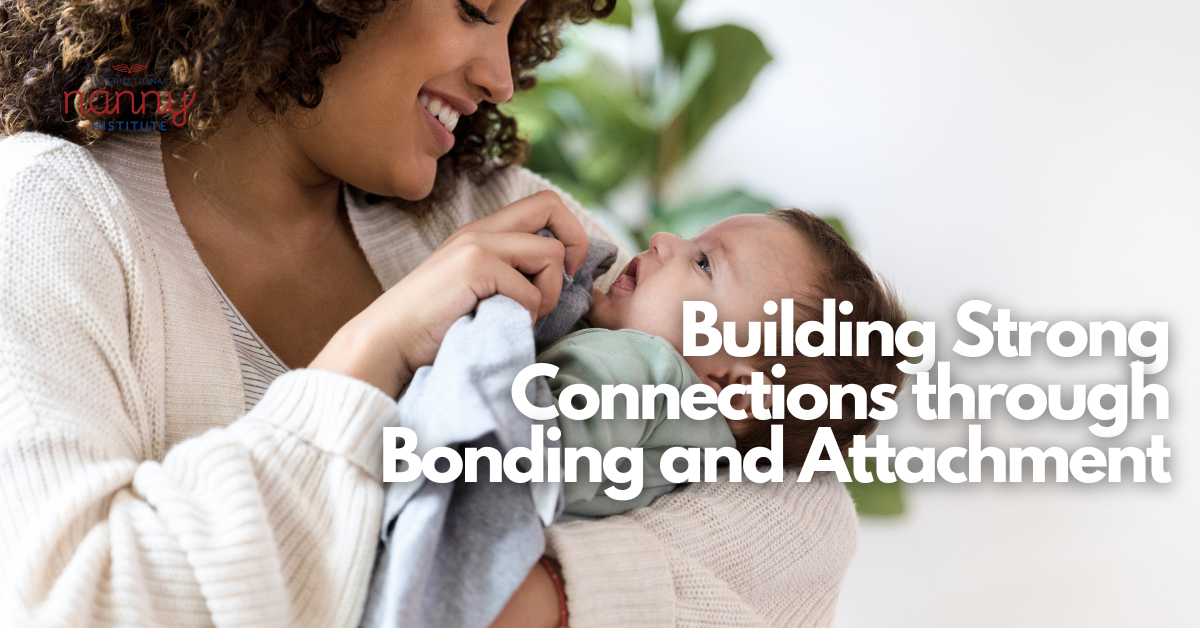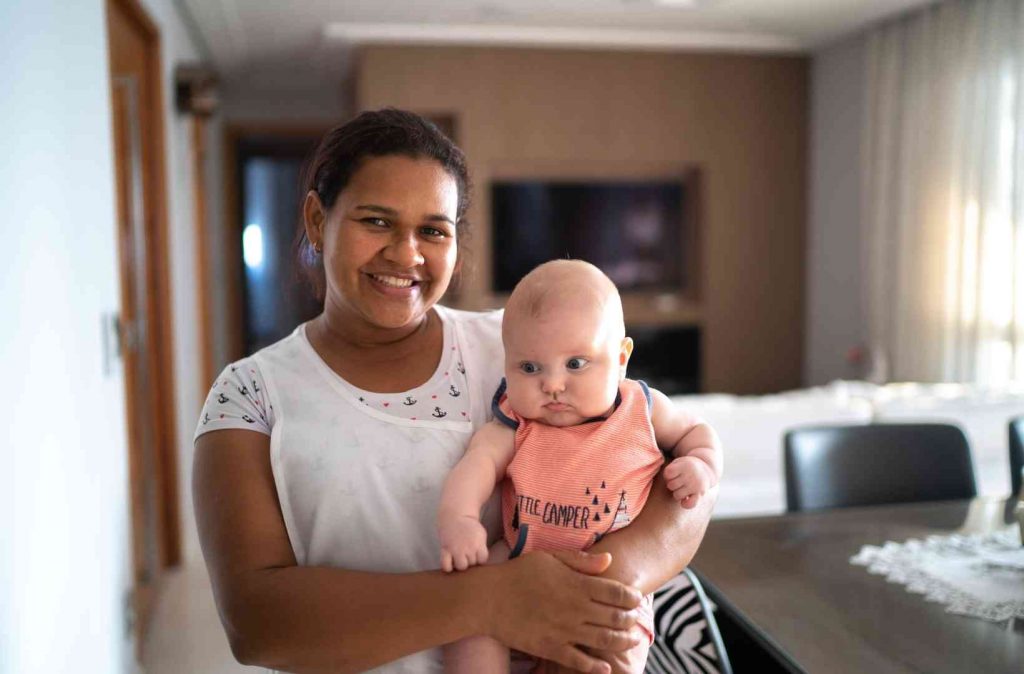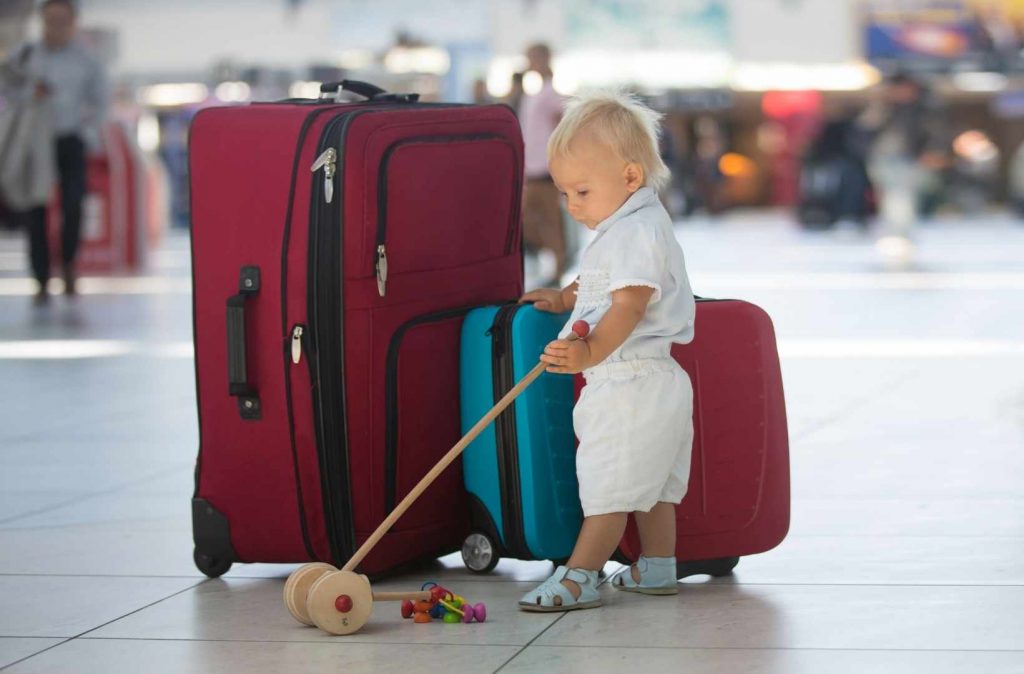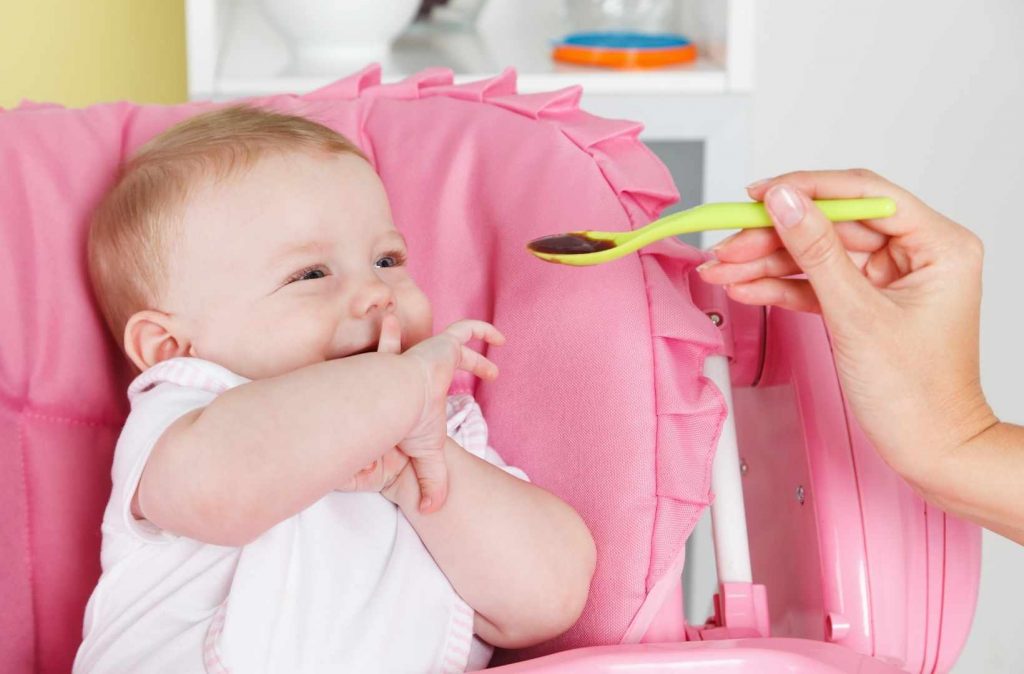As a professional nanny or maternity nurse, your role extends far beyond ensuring the basic needs of the infants under your care are met. It encompasses creating a nurturing and loving environment that fosters a deep bond and secure attachment between you and the babies. The connections you establish serve as the very foundation upon which trust, love, and emotional well-being are built in these young lives.

By forging a deep bond with the infants, you become a trusted and reliable caregiver in their eyes. They learn to recognise your presence as a source of comfort, reassurance, and safety. This bond instils a sense of security within them, allowing them to explore their surroundings with confidence, knowing that you are there to support and protect them.
Furthermore, the bond you cultivate goes beyond the immediate caregiving relationship; it lays the groundwork for the development of the babies’ future relationships and emotional well-being. When infants experience a secure attachment with their caregivers, they learn how to build healthy and trusting connections with others throughout their lives.
By consistently meeting their physical and emotional needs, you communicate to the babies that they are valued and loved. This validation and emotional support contribute to their overall well-being, helping them develop a positive sense of self and a solid foundation for their emotional growth.
Understanding the Importance of Bonding and Attachment
Bonding and attachment are pivotal for the overall development of babies. As a professional nanny, you play a vital role in nurturing these connections, which provide the following benefits:

Trust and Emotional Security
Bonding and attachment create a sense of trust and emotional security in infants, allowing them to explore their world with confidence and seek solace in your care during times of distress.
Healthy Socioemotional Development
Secure attachment supports the development of healthy socioemotional skills in infants, including empathy, self-regulation, and the ability to form positive relationships throughout their lives.
Language and Cognitive Development
Strong bonds with caregivers like yourself create an environment conducive to language acquisition and cognitive growth. By engaging in responsive and interactive communication, you stimulate the babies’ brains and language skills.
Practical Strategies to Foster a Nurturing Environment and Strengthen the Bond
There are many practical strategies that can help to foster a nurturing environment and strengthen the bond between caregivers and babies.

Gentle and Responsive Care
Respond promptly and sensitively to the babies’ needs, ensuring that their physical and emotional requirements are met consistently. By providing gentle and responsive care, you reinforce the sense of trust and security in your relationship with the infants.
Eye Contact and Positive Interactions
Maintain eye contact with the babies during feeding, diaper changes, and playtime. Use warm smiles, positive facial expressions, and gentle tones to create nurturing interactions that strengthen the emotional connection.
Physical Affection and Comfort
Embrace the power of physical touch by cuddling, hugging, and gently stroking the babies. Physical affection provides comfort, reassurance, and a sense of love and protection.
Engage in Developmentally Appropriate Activities
Plan and engage in activities that promote shared experiences and stimulate the babies’ development. This can include age-appropriate play, singing, reading, and gentle exploration of their surroundings.

Establish Consistent Routines
Create predictable daily routines for meals, naps, and bedtime. Consistency fosters a sense of security and helps the babies feel safe and well-cared for.
Effective Communication
Pay close attention to the babies’ cues and non-verbal communication. By being attuned to their needs, you can respond appropriately and provide the necessary comfort and support.
Collaborate with Parents
Maintain open and regular communication with the babies’ parents. Share observations, milestones, and discuss strategies to ensure consistent care and reinforce the bond between the infants and their parents.

Your role as a professional nanny involves not only providing physical care but also offering emotional support and attunement. By being present and responsive to the babies’ cues, you build a communication bridge that enables them to express their needs and feelings. This open line of communication fosters a deeper understanding between you and the infants, strengthening the bond and creating an environment where their emotional needs are met.
As you establish a deep bond and foster a secure attachment, you are laying the groundwork for the babies’ future emotional resilience. Through this bond, you become a source of consistency and stability in their lives, providing them with a safe haven to return to during times of stress or uncertainty. This sense of security enables them to develop healthy coping mechanisms, build resilience, and navigate the challenges they will encounter as they grow.
You can learn more about bonding and attachment and gain comprehensive knowledge and practical skills in bonding and attachment Maternity Nursing: The First Year. This online course will equip you with the expertise to build deep bonds and foster secure attachments with infants, ensuring their emotional well-being and development. Learn from experienced instructors, explore scientific principles, and discover practical strategies to provide nurturing care. Maternity Nursing: The First Year can help you make a meaningful difference in the lives of infants and their families while embarking on a rewarding career in the field of maternity nursing. Don’t miss the opportunity to shape the lives of babies and enrol today!












